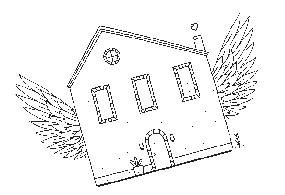 Time to revise its mission for the 21st Century
Time to revise its mission for the 21st Century
[The Rev. Dr. John R. Van Eenwyk has retired as a clinical psychologist and Jungian analyst in private practice, an ordained priest in the Episcopal Church, a clinical instructor at the University of Washington School of Medicine, and an Adjunct Professor at Antioch University. He co-founded the International Trauma Treatment Program here in Olympia.]
“The goddess of commerce is hard, and the lotus of beauty fed by human ideals does not bloom beneath her feet.” Rabindranath Tagore
The Port of Olympia has become a parasitoid. Parasitoids kill the “host” on which they feed. The Port of Olympia feeds on our tax dollars and destroys the environment upon which the people of Olympia depend for the air we breathe, the water we drink and the food we eat.
How did this come to pass? Very simply, the Port’s mission has become an anachronism. There may have been a time long ago when the Port’s mission statement, “Creating economic opPortunities and building community for all of Thurston County through responsible resource use,” may have seemed a good idea. But “responsible resource use” has rarely considered climate change and instead been a gift to developers.
The Olympia area is enduring a thirty-year drought. Cedars, hemlocks, firs, spruces—to name only the largest of trees—are dying. The water level of Budd Inlet, on its way to becoming a bog, has risen to the point where downtown Olympia faces the prospect of routine flooding. One could ask if the Port’s activities help or hurt Boston Harbor Marina. The answer is obvious.
How do the Port Commissioners not recognize this? Our youth do. They stage 20-minute “die-ins” at the City Council, yet nothing is done beyond token minimalism. The juggernaut of development churns on, devouring everything in its path. Our youth will watch their children suffer from lack of water, clean air and food.
What is the Port’s response? First, clearcut and pave 200 acres of forest to make way for warehouses. Second, pave over the aquifer for a bottling plant run by Coca-Cola, “the world’s biggest producer of plastic waste,” as the University of Washington puts it. Third, expand the airport to handle scores of landings and takeoffs, each one contributing to the warming of the planet—not to mention toxic spills that seep down into the aquifer and ruin our drinking water.
Are Port Commissioners simply blind? One might reasonably think so.
Consider the Port’s current activities: ships that burn bunker fuel and logging trucks and log loaders that pour tons of particulate matter into the air. Anyone noticed the increase in asthma lately? How about the carbon they spew into the atmosphere?
The “deep water port” loses money every year. Wasn’t the Weyerhaeuser deal supposed to be a shot in the arm? Not only does it lose money, it damages infrastructure. Who is going to pay for the wear and tear on Plum Street from the hundreds of logging trucks? The Port? Not likely. We the taxpayers are on the hook for that. The Port will say those losses are not their responsibility – nor something to be reported on their (un)balance sheet. Worse, they plan to renew the twenty-year contract with Weyerhaeuser.
Do the Port Commissioners not realize that their mission no longer works? Remember the Boutique Hotel idea? The one that would be sandwiched in between the sewage treatment plant and the lumberyard? Who did they think would want to spend time there? Now they are floating the idea of an RV park. Is it not enough that the Port has paved over virtually all of the peninsula north of downtown?
It may be time to revise the Port’s mission statement. How about “Cut It and Pave It?” Or “Where Nature Lives Shall Asphalt Be?” At least these would be more honest and candid.
Without tax dollars, the Port could not function. Can we help the Port see the damage it causes? Can we help it enter the 21st Century?
We can—maybe not individually, but certainly together. If tax dollars fund the Port’s destruction of our future, maybe we should turn off the spigot. Tax revolt is a last resort, but in this case, it’s all we have.
Parasitoids are not overly concerned about the hosts they kill. They simply find another. Likewise with the big money interests who have the option of numerous ways to exploit the Port.
The Port Commissioners may be doing the best they can under the circumstances. Bob Lyall, for example, has recently come out in favor of the estuary option for cleaning up Budd Inlet. Of course, that poses a problem for a “deep water port.” But since it loses money every year, that would hardly be a loss.
If the commissioners are powerless to redefine the Port’s mission, then we the public must do so–starting by withholding tax dollars.
The mission then must change. Indigenous peoples preserved the environment for thousands of years before we arrived to pave it over. They recognized the following:
“When the last tree is cut, the last fish is caught, and the last river is polluted; when to breathe the air is sickening, you will realize, too late, that wealth is not in bank accounts and that you can’t eat money.”

Be First to Comment